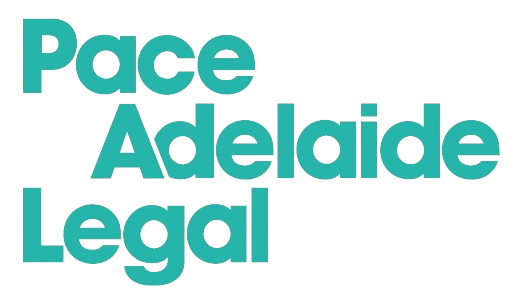Property Settlement Lawyers
Got A Question About Your Family Property Settlement? Click hereAsk Us A QuestionWhat is property settlement?
Property settlement is a formal Court Order or Binding Financial Agreement. It records how all property of a marriage or de facto relationship is to be divided, usually following the breakdown of the relationship.
Property Settlement Experts
Simple Property Settlements
Our property settlement team will review your matter. Our experienced settlement lawyers will ask the the right questions to establish the facts and gather the information required, to move your matter along efficiently.
Our Simple 4 step process means that we don’t waste time or money and can give you the answers and advice you need, in order to make an informed decision.
Complex Property Settlements
The Adelaide Legal property settlement lawyers are expert in complex property settlements.
Working in conjunction with the commercial law team, we are able to offer a unique and superior service on complex family law property settlement matters, for high net worth individuals and matters involving high value asset pools.
What Is The Property Settlement Process?
Property settlement can be broken down into an easy to understand 4 step process.
1. Establish the total assets owned
2. Establish the contributions of each party during the relationship
3. Establish the future needs of each party
4. Establish that the agreed settlement is fair & equitable?

What is included in “Property and Assets” in a Property Settlement?
- Items that are owned by either you or your partner
- Items jointly owned
- Financial holdings
- Debts
- Future Earnings Capability
Free 30 Minute property Settlement Consultation
Contact us for a free 30 minute no obligation consultation
Items that are “owned”
Things that are owned individually by you or your former partner, including things you owned prior to your relationship.
Things that you jointly acquired during your relationship.
Need help Listing Your Assets?
Get our handy Assets Register Checklist Here:
Financial Holdings
These Can Include:
Superannuation | Trusts | Inheritances | Long Service Leave
Business Holdings | Savings | Shares & Investments

Debts
Are Debts included in any settlement calculation?
Yes all debts are included in a settlement calculation, including:
Bank Debts | Mortgages | Car Finance
Credit Card Debts | Any Other Loans
So, anything you owe money on, or any debts you may have, have to be included in a property settlement.
Need help Listing Your Assets?
Get our handy Assets Register Checklist Here:
Be Aware
If you or your partner don’t mention or include any assets or liabilities during a property settlement may result in any agreement being thrown out by the court. This means you would have to start all over again and pay the additional associated fees.
How much will I get from my settlement?
It is a common misconception that all property settlements are split 50/50. This is not the case. Many factors need to be taken into consideration in reaching a percentage split, and the asset distribution varies according to each matter.

The Court considers a range of factors called “Chapter 75(2) Factors”
These are listed listed here:
- The age and state of health of each of the parties.
- Income, property, finances and ability to earn an income.
- Whether either party has the care or control of a child of the marriage who has not attained the age of 18 years.
- Commitments relating to support of themselves, a dependent or other person.
- Eligibility for a pension, allowance or benefit.
- Where the parties have separated or divorced.
- The extent to which payment of maintenance could enable further education and therefore increase their earning capacity.
- The effect of any proposed order on the ability of a creditor of a party to recover a creditor’s debt.
- The extent to which one party has contributed to the income, earning capacity, property and financial resources of the other party.
- How the length of the marriage affected the earning capacity of the party seeking maintenance.
- The need to protect a party who wishes to continue their role as a parent.
- Financial circumstances of any current cohabitation by either party.
- Orders made under Section 79 of the Family Law Act, if any. This section regulates how assets are to be divided.
- Any child support that one of the parties is liable for.
- Any fact or circumstance which the court feels needs to be taken into account for reasons of justice.
- The terms of any financial agreement binding on the parties to the marriage.
Need Help with your property Settlement?
Free 30 minute Consultation.
Book a free 30 minute property Settlement Consultation:
Phone Call – Zoom – In Person
Get Sensible Sound Advice From Adelaide’s Best Settlement Team
Can’t agree on how to divide the assets of your relationship or just need some help and advice to work through all the property settlement issues?
Support & Guidance
Adelaide Legal is here to support and guide you towards the best possible outcome for you. We can help you work through the many issues you encounter when faced with the prospect of divorce, such as resolving property matters and ensuring that the children are cared for, with minimum disruption to their routine. Sensible advice for a sensible separation and a sensible divorce.
No need to wait for divorce
Many people think that a property settlement can only be undertaken after divorce or separation is finalised, but that isn’t the case. In fact, you can finalise your property matters any time after separation and indeed, many clients choose to do so. We are here to help you work through it.
30 Minute No Obligation Consultation
To make it easier on you, our experienced Adelaide Legal family lawyers offer a free 30 minute, no obligation consultation, where we can talk you through your options. Sensibly.
More About Property Settlement
Are There Time Limits Applying to Property Settlement?
Yes. The time limit to bring a claim commences from the date of separation, so it is important to get advice as soon as possible after your relationship has ended. For a defacto relationship, this is generally two years from the date of separation.
In the case of a marriage, once a divorce has been finalised there is a 12 month time limit within which your property settlement must be finalised, otherwise you may lose your right to bring a claim in the Court if the matter cannot be resolved without litigation. You can apply for property settlement at any point after separation.
Will I need to go to Court?
If you and your ex-partner can’t reach an agreement, then it may be necessary to make an application to the Court. The Court will take into consideration all of the factors of your case and will organise a conciliation conference where you, your lawyer, your ex-partner and their legal representative can meet in an attempt to reach agreement. If there is any reason that you do not feel comfortable being in the same room as your ex-partner, then it can be arranged for you to be in separate rooms.
If agreement cannot be reached by way of this conciliation conference, then the matter would proceed to trial and the Court would make a decision on the distribution of the assets of the relationship based on the evidence presented.
Superannuation
Superannuation can be a major asset which is also considered as part of the marital/defacto property pool, and may be equalised between the parties as part of your property settlement. Superannuation isn’t always straightforward, so let us help you cut through the jargon and keep it simple. The sensible way.
How can Adelaide Legal help?
At Adelaide Legal we understand that this can be an overwhelming and emotional time, and that’s why we work with you to achieve the best possible outcome. Regardless of the complexities of your case, you can rely on us. Whether we resolve your matter by consent or through litigation, our team of property settlement lawyers in Adelaide will be with you every step of the way.
At Adelaide Legal, you matter to us.
Call us today on (08) 8410 9294 to arrange a meeting, or email us at info@adelaidelegal.com.
Property Settlement Questions & Answers
How long will my property settlement take?
A financial settlement can be finalised in as little as two weeks if your ex partner and you are agreeable to the terms of the divorce settlement.
If you can’t agree, the next stage is mediation. The process of mediation may take a few months.
If the matter goes to court, a financial settlement can take up to 3 years.
Will I need to go to court?
If you and your ex-partner can’t reach an agreement, then it may be necessary to make an application to the Court.
The Court will take into consideration all of the factors of your case and will organise a conciliation conference where you, your lawyer, your ex-partner and their legal representative can meet in an attempt to reach agreement.
Is there a time limit for a property settlement?
Yes. The time limit to bring a claim commences from the date of separation, so it is important to get advice as soon as possible after your relationship has ended. For a de facto relationship, this is generally two years from the date of separation.
In the case of a marriage, once a divorce has been finalised there is a 12 month time limit within which your property settlement must be finalised, otherwise you may lose your right to bring a claim in the Court if the matter cannot be resolved without litigation. You can apply for property settlement at any point after separation.
Does it matter whose fault the divorce is?
No, it doesn’t matter whose fault the divorce or separation is.
“The Family Law Act 1975 established the principle of no-fault divorce in Australian law.
This means that a court does not consider which partner was at fault in the marriage breakdown. The only ground for divorce is the irretrievable breakdown of the relationship, demonstrated by 12 months of separation.”
No fault divorce – Family Court of Australia.
What items are included in a property settlement?
Included in any property settlement are items such as:
Your home
Any investment properties
Long Service Leave
Cars
Furniture
Jewellery
Sports Equipment
Boats
Trailers
Caravans
Clothes
So – everything you own as a couple or individually.
I have told my partner that I want to leave. What should I do next?
When you have decided to separate from your partner it is important that you take control of the situation for your own benefit.
Set a formal date for separation, start pulling together documents relating to your personal and joint finances and engage an experienced family lawyer.
You may also want to consider closing any joint bank accounts and you should ensure you have a good support structure around you.
Do both partners have to agree to separate?
Simply put, no. Both parties don’t have to agree for separation to occur. Usually, if one person wants to leave the relationship and the other doesn’t, the party wishing to leave will vacate the shared residence and this will be the date of separation.
What is an “asset pool” for the purpose of a property settlement?
An “asset pool” comprises the following elements:
All Financial holdings
Property that you own individually or jointly, including commercial property
Superannuation
Physical assets, such as cars etc
Business interests and associated property
Shares
Inheritances under certain circumstances
All household items
Jewelry
In fact anything that has material value
We are married so our asset pool gets divided 50/50, doesn’t it?
Asset pools are divided according to the current and future needs of each party, including future earnings potential and in consideration of the needs of dependent family members.
How long do we have to wait before we can divide our assets?
Discussions regarding the division of assets can occur as soon as a couple separates and assets can be divided as soon as an agreement is reached.
When can I apply to the court for property settlement?
You can apply for a property settlement at any time after separation. You must however make sure that you provide all of the relevant information.
How long after separation do I have for my property settlement?
For married couples you have 1 year from the finalisation of your divorce to complete your property settlement.
In the case of de facto relationships you have up to 2 years to settle from the date the relationship ended.
What happens if my property settlement runs over the time limit?
If your settlement runs over the prescribed time limit you will need to apply to the court for leave to proceed. You will have to explain why a resolution has not been reached and/or demonstrate that you or a child will suffer if leave is not granted. The court has the discretion to grant leave or not.
What are my options if all the properties are in my spouses name?
In this situation a number of factors are considered. With a property for example, the outcome may vary depending on factors such as:
If your partner owned the property prior to your relationship
How long it was owned
How long you have been together
Has money been spent on the property during your relationship and so on
Your future needs are also factored into any calculation
In this case it is best to consult a family lawyer sooner rather than later.

Jessica Sinclair
Special Counsel
Contact Jessica
Be in touch
If you are interested in working together, send us an enquiry and we
will get back to you as soon as we can.







